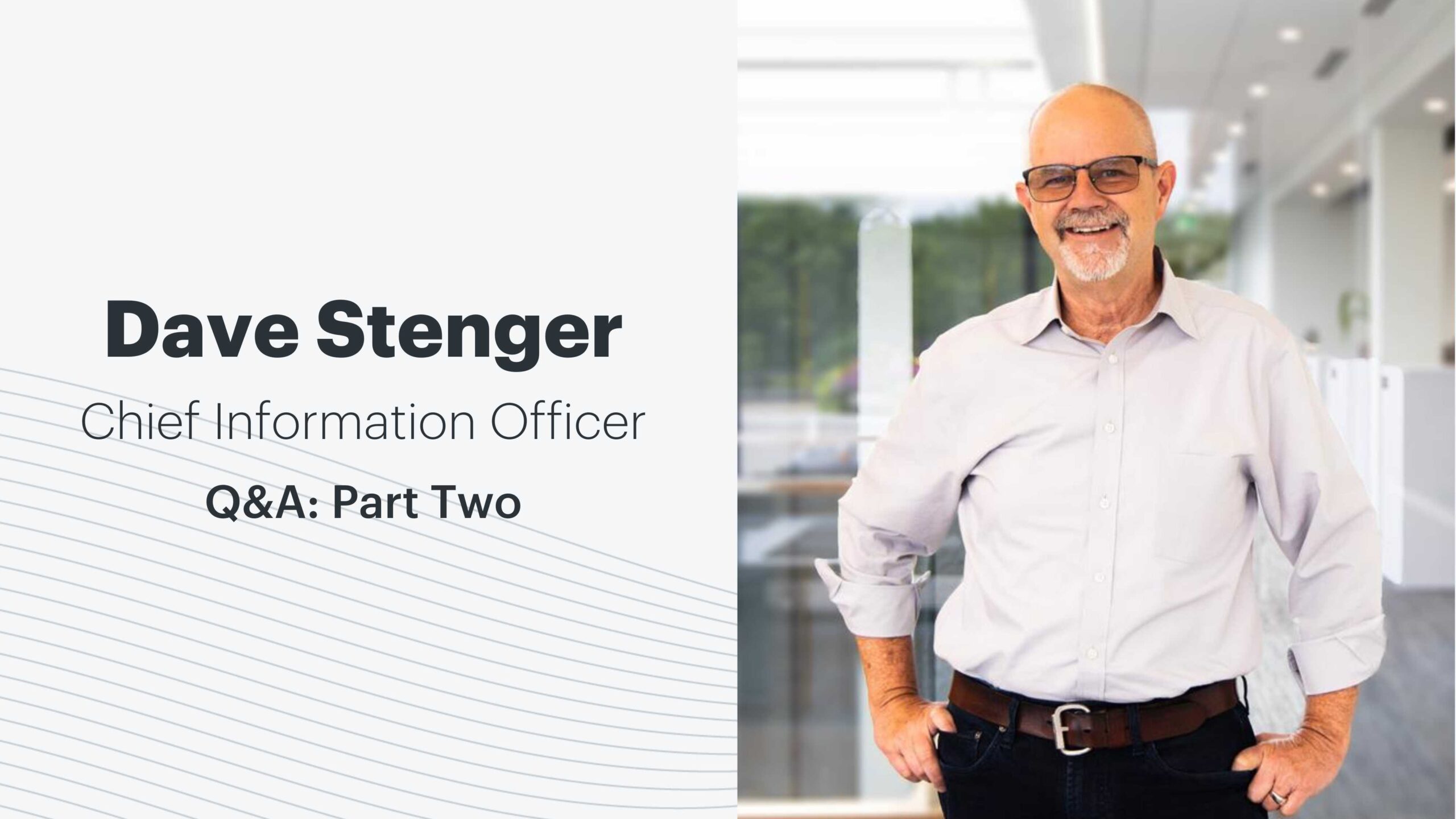Knowledge Services’ technology team is committed to bringing innovative, secure tech solutions to our clients. By owning the technology that powers our core services, Knowledge Services stands apart and can deliver superior levels of security, reporting, and stability for State and Local governments across the United States.
Dave Stenger, CIO of Knowledge Services, has guided the company’s development team for 20 years. In that time, he helped the company scale its technology to meet increasing demand and safeguard it from cyberattacks. As craftsmen in their field, Stenger challenges his teams to constantly bring new value to Knowledge Services’ clients. One of the chief engines to drive innovation is the development team’s Agile mindset and principles. Under Agile, cross-discipline teams work together during sprints to maintain and bring new features to Knowledge Services’ tech stack.
Discover how adopting Agile challenged Dave and his team and learn the many benefits it brings Knowledge Services’ customers.
Don’t miss Part I of Knowledge Services’ interview with Dave Stenger. Discover the reasons why Stenger and his team adopted the Agile mindset.
Knowledge Services: KS’ development team has been operating with an Agile mindset for nearly 7 years. What benefits has Agile brought the company over its previous workflow?
Dave Stenger: With Agile, your code is your document. You’re constantly writing a bit of code and presenting it back to the customer to confirm it’s what they want. There’s nothing like seeing something to know if you’re headed in the right direction. If you’re not right, you can take immediate corrective action. And even if you are headed in the right direction, you still learn things from the customer to improve the product. So Agile helps us deliver faster, and our deliveries are smaller, so they never actually destabilize the code.
Another big advantage of Agile is being able to prioritize. With everyone working together, you know more quickly if you’re working on the most important aspect of a project. And if you’re not, it’s better to learn that in a 3-week sprint than at the end of a 6-month development cycle.
One other big value is that during our product reviews, other people within the company can step in and take a look. Every department at Knowledge Services depends on our technology. And when we have eyes across departments on the product, our technology gets stronger. Candidly, the benefits of Agile have been endless.
KS: How does Agile improve Knowledge Services’ cyber posture and our clients’ security?
DS: Security issues may not have a long shelf life before the next attempt occurs. Being responsive and nimble are critically important to working at the pace of bad actors. With standard defects, customers are generally quick to forgive if you are quick to respond. That isn’t as true with security issues. Staying in front of trends is important and having an agile mindset helps that.
KS: Is there anything you know about Agile now that you wish you knew when your team adopted the mindset?
DS: It’s important to understand that part of that mindset is acknowledging that today we are as smart as we’ve ever been. Tomorrow, we’ll be smarter as we gain new information. That does not mean we shouldn’t make decisions today, rather we should make them know things will change in the future, and responding to change is a given, not something to be fought.
If you really understand that you don’t waste too much time perfecting the long-term plan. Instead, you build the increment of value you know is beneficial now and you utilize customer feedback to continuously improve. That’s the biggest challenge for many people. It’s good to believe you always have good ideas, everyone does! That’s one of the beauties of working at Knowledge Services: We get to work among great people with good ideas, and we continue to hire more. But that only gets you so far if you’re not willing to keep listening and continue to evolve the ideas and product as new information is gained. After all, that’s what makes tomorrow, worth waking up to. I’m curious. Are you?





